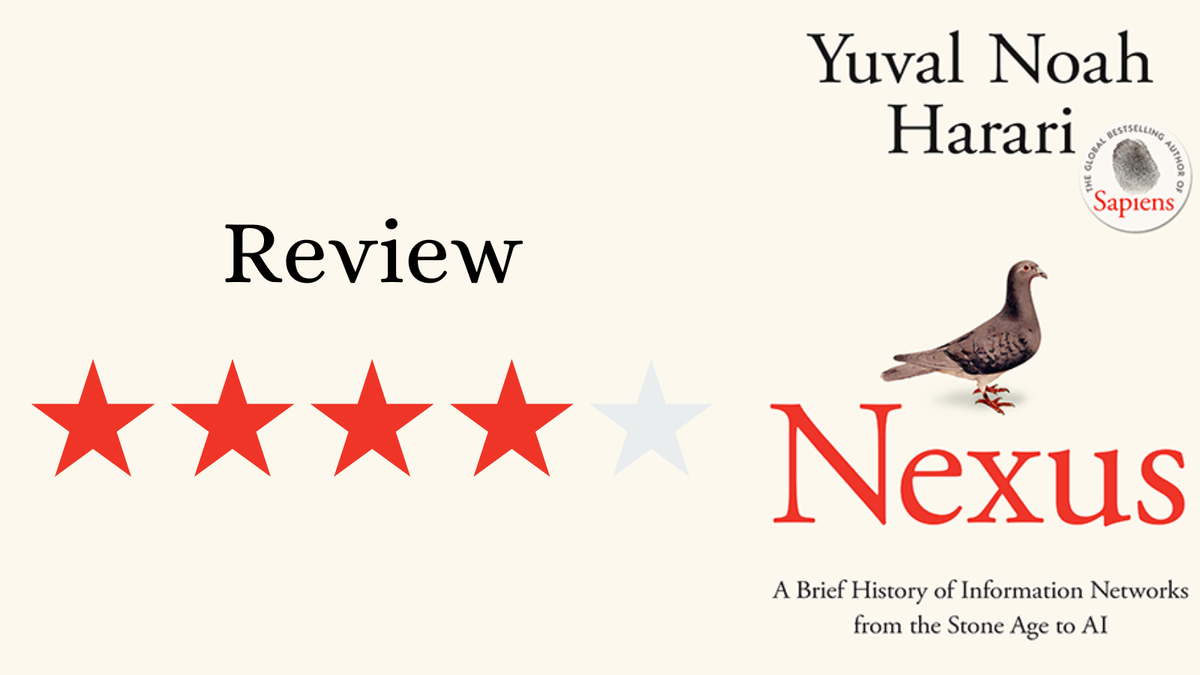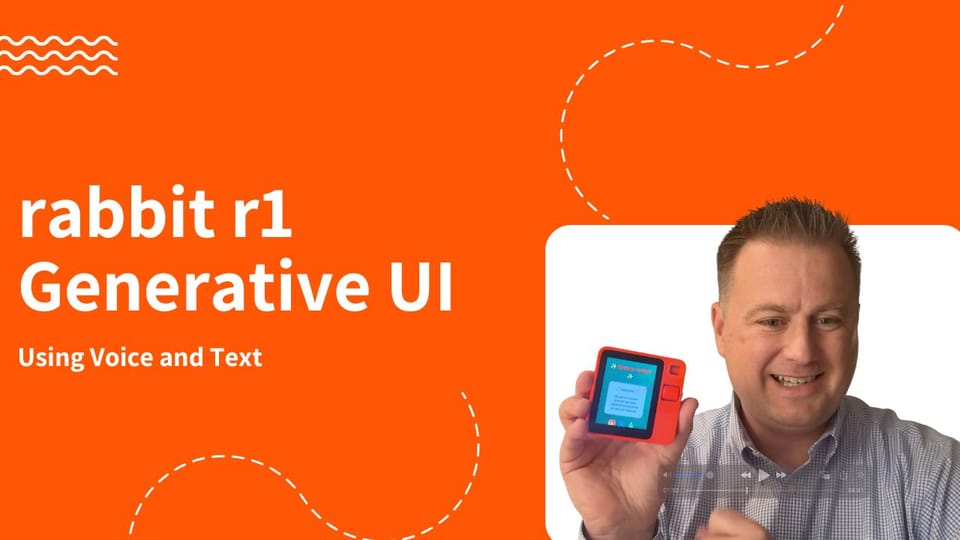Review: Nexus by Yuval Noah Harari
Can we align Alien Intelligence (AI) with human flourishing?

With the insights of a studied historian and the questions of a cautious philosopher, Yuval Noah Harari argues that we are at a critical moment as a species: Will we develop and unleash alien intelligence (AI) with limited regulation absent of critical self-correcting mechanisms within our societies, or will we collaborate to leverage AI's most promising and beneficial powers?
Harari brings expert insights on the history of information creation and curation to this discussion, dispelling the myth that more information leads to more accurate descriptions of reality. Rather, he explains that the quality of information is paramount, and crucially, often hinges on political, mythological, and ideological interpretations. While this statement may seem obvious, it’s worthy of considerable discussion (and many pages) in Harari’s work.
The leaders in the AI race are currently large U.S. companies such as Google, Meta, and OpenAI. (There are, of course, others creating capable products, but these corporations stand apart.) The models developed by each of these companies depend on vast amounts of data gathered into neural networks with algorithms capable of making connections and predictions with limited human understanding. Mustafa Suleyman, current CEO of Microsoft AI and former co-founder of DeepMind, writes in The Coming Wave, “[T]he neural networks moving toward autonomy are, at present, not explainable…[they] are black boxes, their outputs and decisions based on opaque and impossibly intricate chains of minute signals.” In other words, our most educated and talented humans can’t explain exactly how these models generate responses. This means that the data set cannot easily be audited for bias, inaccuracies, or alignment with values aimed at human flourishing.
We’ve already seen how this can lead to both ridiculous and potentially harmful outcomes. In May of 2024, Google’s Gemini suggested that nontoxic glue could be used to thicken pizza sauce and that geologists recommend eating one rock per day. This is troubling but not civilization-ending. But what if such AI tools are used to determine who gets a loan, who is admitted into colleges, your insurance rates, or your health care services? We quickly enter scenarios with much graver consequences.
Once Harari exposes the myth that more information results in increased truth, he explores the role of self-correcting mechanisms on a spectrum of political governance. In democracies, the media, courts, whistleblowers, bureaucracies, laws, non-governmental organizations, and other entities create a system of checks and balances. Over time, inaccuracies and propaganda can be dispelled. In totalitarian regimes, information flows to a single party and often to a single individual. While previously this led to devastating oppression, it was still incomplete, because no dictator has ever had the ability to completely surveil a population and process the data efficiently. AI is already being used in unprecedented ways to identify, track, and penalize political dissidents. Of course, similar technologies can also be used to prevent terrorist attacks and disrupt cyber criminals. The questions are: Who will control these AI agents, and will their efforts even be controllable? Will their increasingly-autonomous decisions be aligned with human interests?
Ultimately, it’s unclear whether Harari is optimistic regarding our future. Perhaps this is by design, or perhaps it’s because he’s more historian than policymaker. This leads me to two criticisms of the book.
First, historical examples are abundant, arguably too numerous to make the book accessible to more readers. If the goal of the work is to influence action by citizens, policymakers, and corporate leaders, I fear that the numerous historical anecdotes, however well-connected and researched, will result in fewer people grappling with Harari’s ideas.
Second, recommendations are only hinted at. Yes, we need more collaboration. Yes, we need rich conversation across ideological divides. And yes, we need to make every effort to steer the use of AI to enrich human life and the wellbeing of our planet. But how? Problems are detailed but prescriptions are not. At this crucial time, someone with Harari’s insights would add more to the conversation by pointing toward a possible future with a balance of historically-informed concerns and equally-powerful (possible) solutions.
Nexus deserves a spot on your reading list, and it underscores the tension between technological progress and what it means to be fully human. But it seems somehow insufficient. If how we treat AI is urgent, we need texts willing to propose ways we can realize its benefits while minimizing its harms.
Disclaimer: A review copy of Nexus was provided by the publisher.



